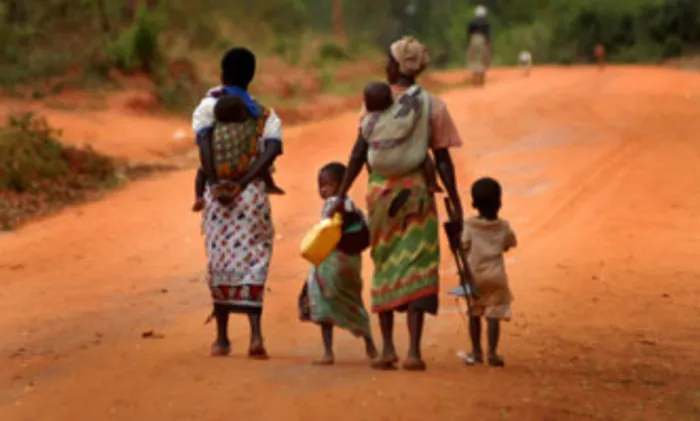Global consumerism traps Africa in cycle of poverty

Chelsea Lotz
FOR centuries Africa has remained in an untenable position, in the grip and servitude of the colonial powers that invaded it.
Through the manipulation of the flow of commodities, powerful nations such as the US, Asia and Europe indebted Africa in a way that still remains deeply entrenched.
Africa’s economy relies solely on the export of commodities, particularly in the sectors of agriculture and mining. This began in the 1800s during the colonial conquest and annexation by imperialist forces, which sought to subjugate and undermine the economic freedom of Africa.
Fast-forward to the export tumble in the 1970s and 80s, whereby Africa’s exports went from 12 to 6 percent, amounting in a loss equal to $50 billion (R659bn).
The export industry did regain itself in 2000 and, according to the UN Economic Report, Africa’s GDP rose by 6 percent the following decade.
Due to commodities leaving the country, it means the wealth of Africa is heavily reliant on the sale of crops such as tea, coffee, cocoa, cotton, sugar, nuts, fruits, fish, minerals and gold.
The rural areas of Africa, which receive an income from selling crops, have to use the funds to survive while farming more goods to be exported, thus creating the present issue that the best of Africa’s commodities go elsewhere.
But here’s the catch: those who are doing the exporting and making the money from exporting commodities are the global corporations who are not from Africa, but who work with imperial forces to exploit Africa.
For example, an international fruit corporation will buy a box of apples from a local farmer in Kenya. That box of apples will then go back to the corporation’s homeland and then be sold back to Kenya for the civilians to buy from a grocery chain, which is also owned by the corporation which receives money from the sale, thus making a large profit instead of the local farmer. It’s this repatriation that is the crux of the debt in Africa.
We see that with the consumer nature of globalism, local communities are neither empowered nor enriched, but rather become a part of the cycle of poverty. The global corporations get richer, while the street vendors remain in deeply entrenched poverty.
For South Africa to attain true economic stability, businesses need to produce products instead of importing commodities from neighbouring countries.
Local manufacturers, street vendors and community businesses need to be supported by the government and civil society instead of large chain stores.
South Africa exports key commodities, but is not producing certain products, which at present can only be imported from abroad. When South Africa imports goods, it empowers and funds the nations providing those goods – yet by producing our own commodities as a nation, we cease to enrich the nations which enslave us.
Global corporations not only exploit Africa through selling back commodities it bought from Africa at a higher cost, but also use their power to make profit from poor communities by keeping those communities enslaved through bad working conditions and low pay.
As there are no forces to regulate rural areas, the conditions are created for child labour – especially when the global corporations overpower the local authorities with the power they have gained from Africa’s enslavement.
Those who do stand up to the global corporations in such a manner that would reduce their workforce or impact their profit, have often been killed. This is modern-day slavery that continues through the silence of international media, and through authorities that feel powerless and are indebted to these corporations who do not give back to the communities they take from.
President Jacob Zuma has highlighted on numerous occasions that for South Africa to advance economically, citizens need to take it upon themselves to produce products so that we can break the cycle of importing goods that leave us indebted.
Africa has long been known for ingenious resourcefulness and, with the support of the ANC empowering local manufacturers, artisans and craftsmen, it might become a reality for South Africa to start becoming a self-reliant and independent country, thus empowering Africa and breaking links with colonial powers that only wish to keep Africa enslaved as a charity state.
l Lotz is a freelance writer and activist